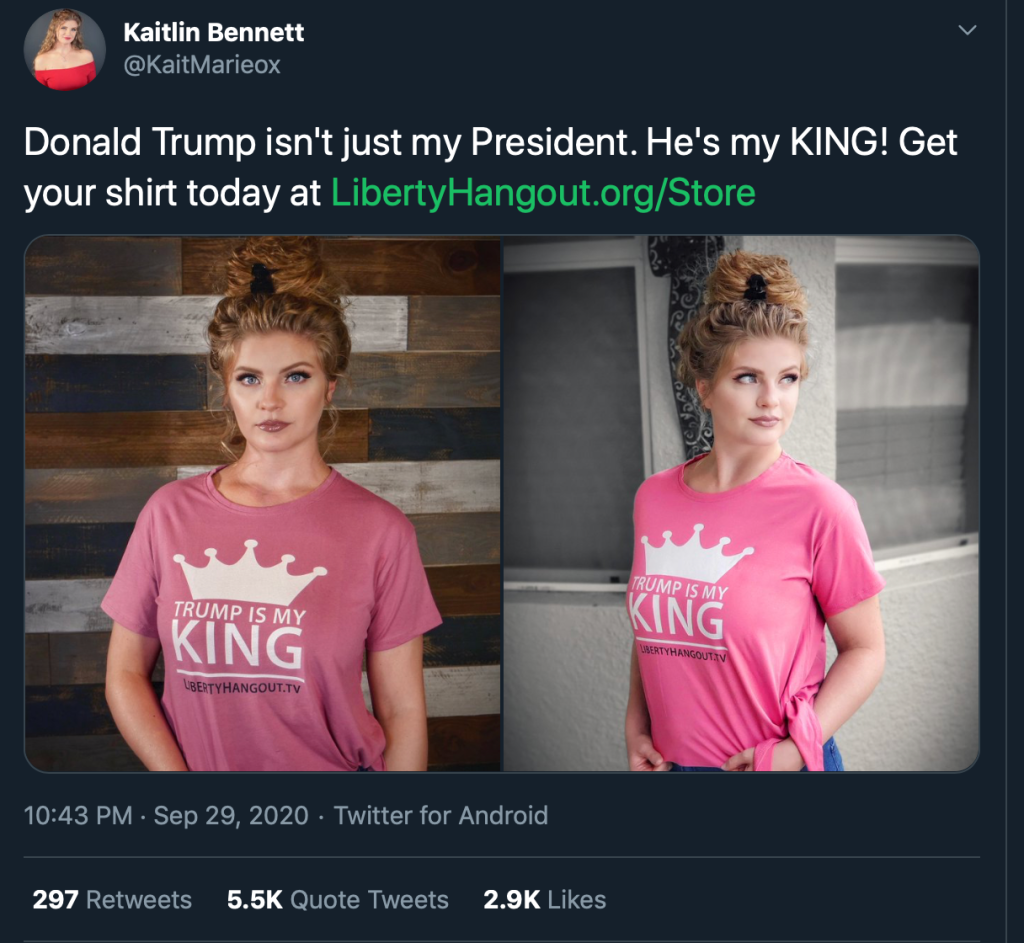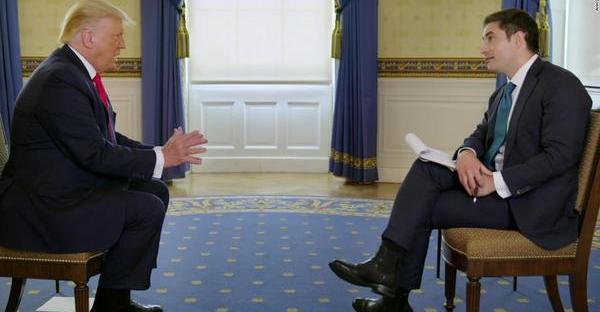It is the final full day of the 45th President’s Presidency. Retired Presidents go on to any number of new passions and pastimes. In his 90s, Jimmy Carter is still building homes for the poor. Bill Clinton started a philanthropic foundation – in his own name, of course. George W. Bush took up painting, and Obama reinvented himself as a film producer.
Donald J. Trump’s post-Presidency may be a bit more complicated, and – considering the number of legal defenses he may need to mount – quite expensive.
Sculpting the image
Prior to his candidacy, many Americans were more familiar with Donald J. Trump the TV personality/Mark Burnett-created persona – or Trump, the serial philanderer – than they were with Trump, the real estate guy or, later, Trump, the brand guy. To hear the President recount his career, it was lucrative and luxurious. Leveraging his friends in the media – and his sometimes PR rep, “John Baron” – he regaled us with name-dropping anecdotes, sexual scandal, and gold glitz.


As the final days of his Presidency wane – and thanks to David Enrich’s deep reporting – we now know that image was crafted on credit.
Brand image has always been paramount to Donald Trump. He slapped his name across buildings and casinos, board games, boxes of butchered meat, bottles of beer, wine and water, a model agency, ghost-written titles, and even a sham of a “university.” These were the Trump business brands. They tend to come and go.
But Donald J. Trump is also a political brand – a brand he’s been cultivating for decades, long before the infamous escalator descent.


Here’s a clip of the President being interviewed by Oprah Winfrey, who prompted him to flirt aloud with the idea of a Presidential bid, way back in 1988.
Though the President is fond of telling his rally crowds that he isn’t, by nature, a politician, Trump has been honing his political image for decades.
His donations to local, State and national political candidates were spread across progressive and conservative ideologies. He’s given modest donations to Mitch McConnell, George W. Bush and his brother, Jeb, and John McCain. He also gave money to Andrew Cuomo, Chuck Schumer, Hillary Clinton, and the man who bested him in the 2020 election, the 46th President, Joseph R. Biden.
Trump seemed less to have political principle and more to desire political access and sway. He didn’t want to drain the swamp; he wanted to lord over it.
As his one-term Presidency comes to an end, gone are the easy grifts, gone are the Trump steaks, the failed casinos, the fraudulent university, and the PGA tournaments held at Trump clubs.
Gone now is the Presidency, and should he be impeached a second time, gone is the opportunity to run again.
But the images of the Capitol under siege – a writhing sea of Trump- and MAGA-paraphernalia on display – prove that Trump’s political image somehow still sells.
The Presidency as profit center
There are theorists who’ve suggested that Trump didn’t really want to be President and that he didn’t expect to win. Rather, they surmise, his ego led him to the campaign, and his eye for opportunism got him vested in the idea.
Though candidate Trump promised the nation that he’d divest from his businesses and put his adult children in charge of the Trump Organization, there’s no evidence that he ever did that, and his children appear to have their own political aspirations.
Some of Trump’s properties hit the jackpot after he took his inaugural Oath. In the first year of his Presidency alone, the Trump International Hotel in Washington, DC, reportedly raked in $40 million.
Some of that money didn’t just buy accommodations; it bought access to the President.
Every time the President went to play golf at one of his courses – reportedly, nearly 300 trips from the start of his Presidency to the end of 2020 – taxpayer monies were automatically dumped into his coffers.
Mar-a-Lago proved politically lucrative for the Trumps. As recently as New Year’s Eve – while the world wrestled with a global pandemic – Mar-a-Lago hosted a maskless gala at upwards of $1,000/plate, with the promise of rubbing elbows with the President on the dance floor, to the tune of aging 1990s pop stars.
He stood them up.
But not all of the Trump properties reaped this good fortune, especially those that didn’t afford access to the Trump family. The Doral Golf Club, for example, was hobbled even before the pandemic hit, and last year, the club laid off approximately 500 employees.
When one door closes …
Two years into the Trump Presidency, during a long weekend in New York City, I saw firsthand the waning popularity of the Trump brand. I walked around Trump Parc, which occupies prime real estate on the edge of Central Park. The ground floor of the building – formerly occupied by retailers – mostly sat empty. FOR RENT signs were perched in some of the windows.

One of the few occupying businesses – an Asian antiquities dealer – was closed, on a bustling springtime weekend.
The skyscraper at Columbus Circle that bears Trump’s name stood tall over the crowded, perpetually-in-motion intersection. At dusk, the building was cast in shadows, the lights inside softly illuminating the rooms behind the tinted glass. Most of the building was dark, with fewer than a dozen rooms seemingly occupied. I stopped and watched it for a while. A few levels up from the street, I observed a man sitting in a chair, pulled up close to the glass, looking out over the relative chaos below. His legs were crossed, and he leaned back into the chair, taking it all in, alone and still. It felt … prophetic.
Some formerly Trump-branded buildings and businesses have removed reference to his name altogether.
The Trump Plaza condo board in West Palm Beach voted unanimously to remove the Trump name from the complex.
New York City severed concessions ties with its native son.
Americans have long had an affinity for celebrity and power. Places where Presidents walked are hallowed ground. This is the land where we erect placards and charge admission to see historic provenance – think, “George Washington slept here.”
If you were to browse the marketing copy of Trump’s former estate in Fairfield County, Connecticut – listed for sale by its current owners for years – you’d find no mention at all of the property’s past affiliation with an American President.
It would appear that Donald J. Trump’s personal and business brands have been greatly diminished by his controversial Presidency – particularly its seditious conclusion. However, his political brand endures. And Trump’s most committed fans buy his swag like tweens buy boy-band merch.
Banners. Flags. Bumper stickers.

MAGA hats. T-shirts.

Hoodies. Leggings. Puzzles.

Car, truck and boat wraps.

Even flagrantly hazardous plastic straws – to simultaneously sip and own the libs.

What is the value of the Trump-family political brand? It’s hard to say. How much of a cut does the Trump family get through official licensing? How much of it represents others now profiteering off the Trump brand?
How much did the President raise with fundraising campaigns like “Stop the Steal?”
How enriched have the Trumps become?
It must be a sizable sum of wealth – a money grab so attractive the President deemed it worthy of destabilizing democracy.















